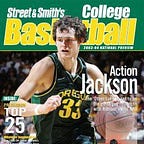Life is but a dream: Eyes Wide Shut remains a devastating observation of the distance between us in modern society
It seems any meditation upon this film could begin with the lyrics of a Wolf Parade song: I’m not in love with the modern world. Whether the film grew from this slightly misanthropic kernel, or blossomed from something a tad more jocular in tone, Eyes Wide Shut remains as it was released: a blistering two-hour-and-forty-minute critique of society and the ways in which it weighs upon the populace. Well, at least the ones who aren’t party to certain…parties.
The power in the wording of the film’s title is revealed in clever details throughout, but it reaches its apex, for me, in the conversation that quickly turns into an argument between Nicole Kidman and Tom Cruise, a real-life couple during production who were playing one onscreen. The set piece was devastating in showing how deep-seated pain must make itself known, often in spasms of unforeseen rage we find ourselves unable to contain. We are social creatures; we need an audience for our emotions. We ride on the pendulums of a Katy Perry song: We fight, we break up; we kiss, we make up.
In this case, it is a husband realizing he has no clue to what his wife is going through. From the wife’s perspective, she is making something known that was a long time coming. At no point has that modern-day adage, You don’t see me, been rendered more forcefully on screen.
When it comes to Tom Cruise’s husband, I am reminded of Jon Hamm’s description of Don Draper’s emotional journey in Mad Men, that here was a quintessentially modern man who is looking for something—just what, exactly, he may not have been able to tell you. He’ll know it when he finds it. You sense the same ambition in Dr. Bill, a practitioner of some renown in New York City, who nevertheless learns quite quickly that despite his expertise in his chosen profession, and the healthy and comfortable standard of living it affords him, he knows precious little about the world around him. The world that until just a few days before he had taken for granted.
It is the arc of a man navigating his quadrant of the modern world. Trying to break through to an upper level, only to find that he is deemed unworthy.
Most notably, it is the arc of a man learning to define his relationship with the opposite sex. The scenes between Cruise and the several female characters he comes into contact with make for the most fascinating aspects of the film: the good doctor moves from meandering the hallways of a swanky party with two incredibly beautiful women who entice him with the discovery of the end of the rainbow, whatever that might be, to a daughter in grief, to a prostitute who propositions him, and on, and on. With each passing encounter, we sense his certainty in the image he presents of himself grow fuzzier. Sooner than he might have hoped we’d see, he is in total departure from that man at the outset of the film.
This is a film that requires repeat viewings, so packed are the scenes with Kubrick-ian details. But it is the relationships between characters that take the day. What Cruise and Kidman discover, toward the end: rather than wallow in forces outside their control, they decide to begin with what is in front of them: each other. The only question is, does that focus blind them to other things they should be focusing upon?
Watch and find out. Then, watch again and find out more.
